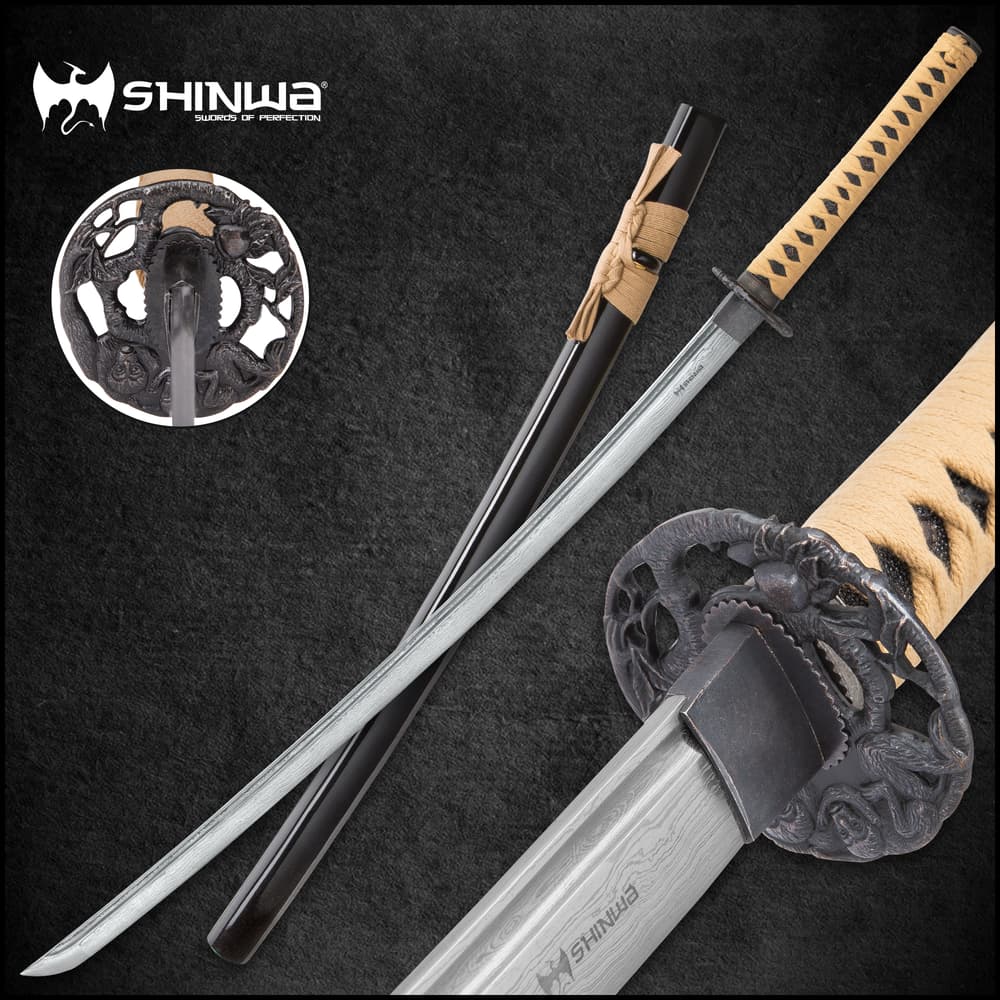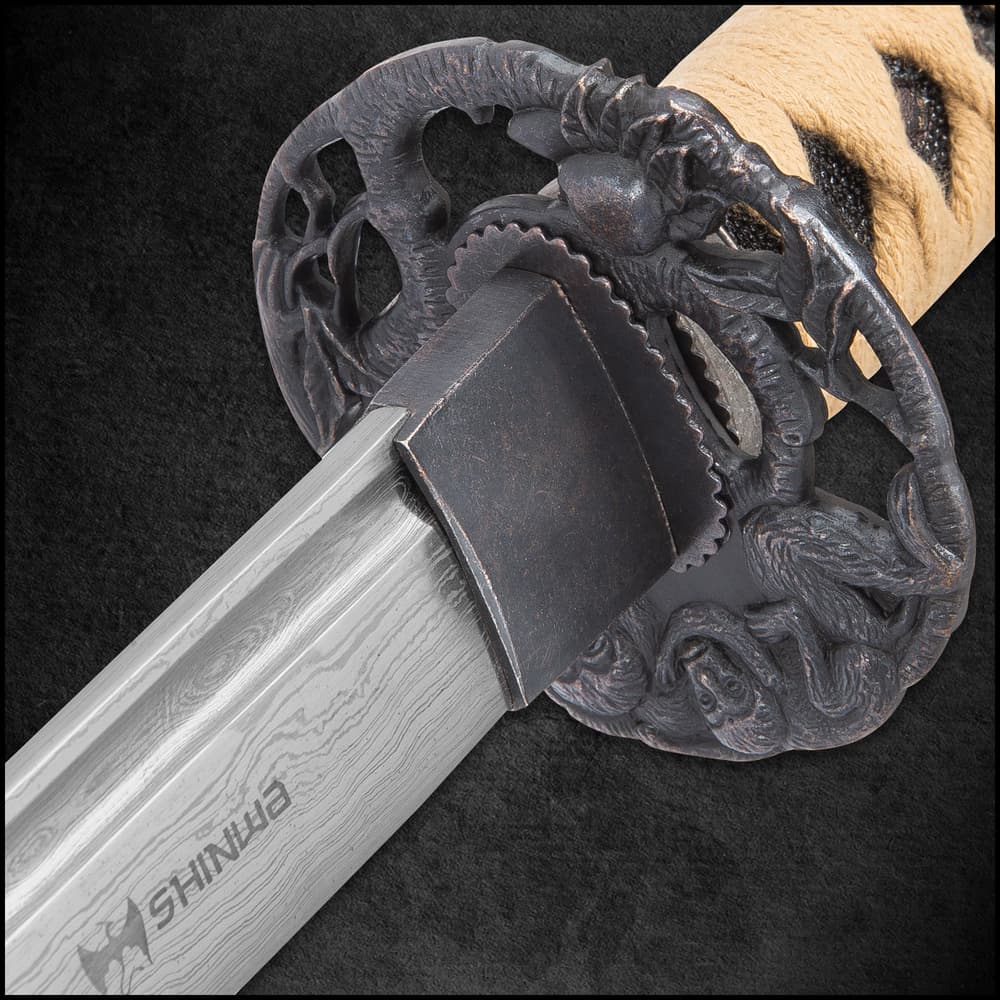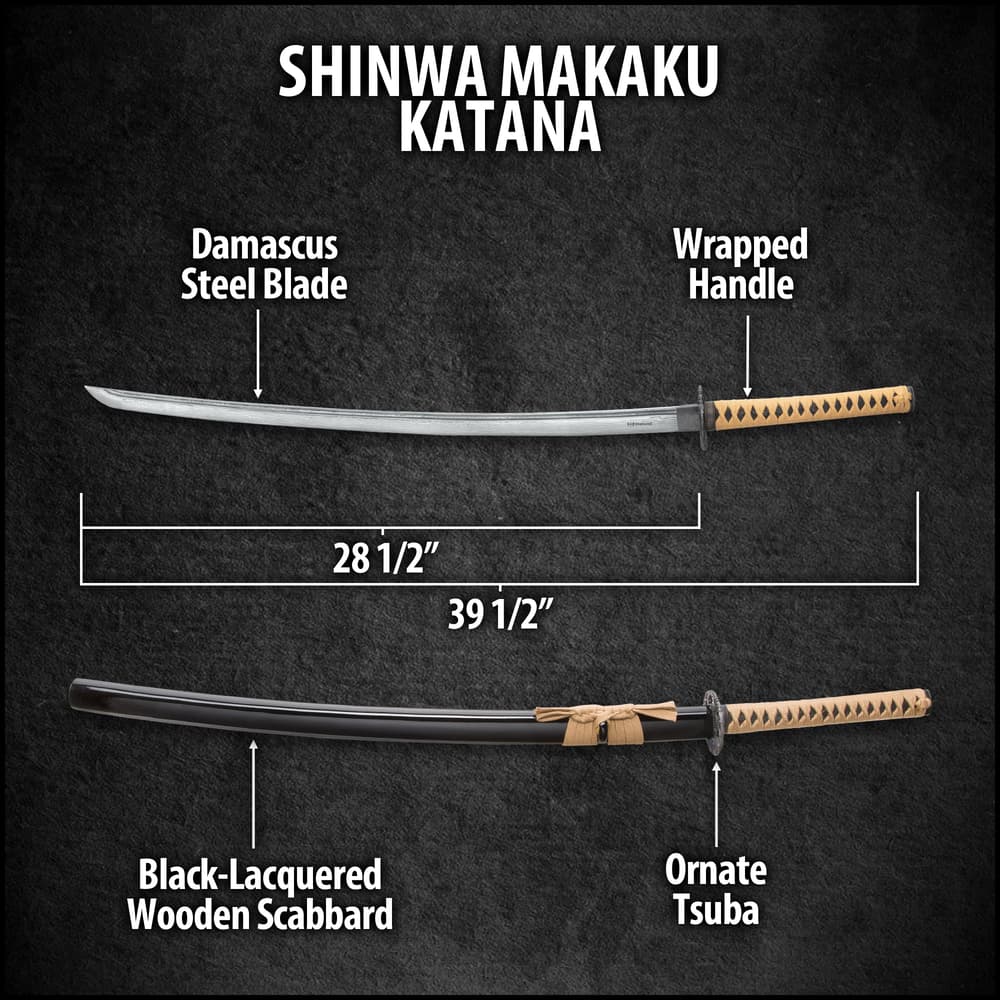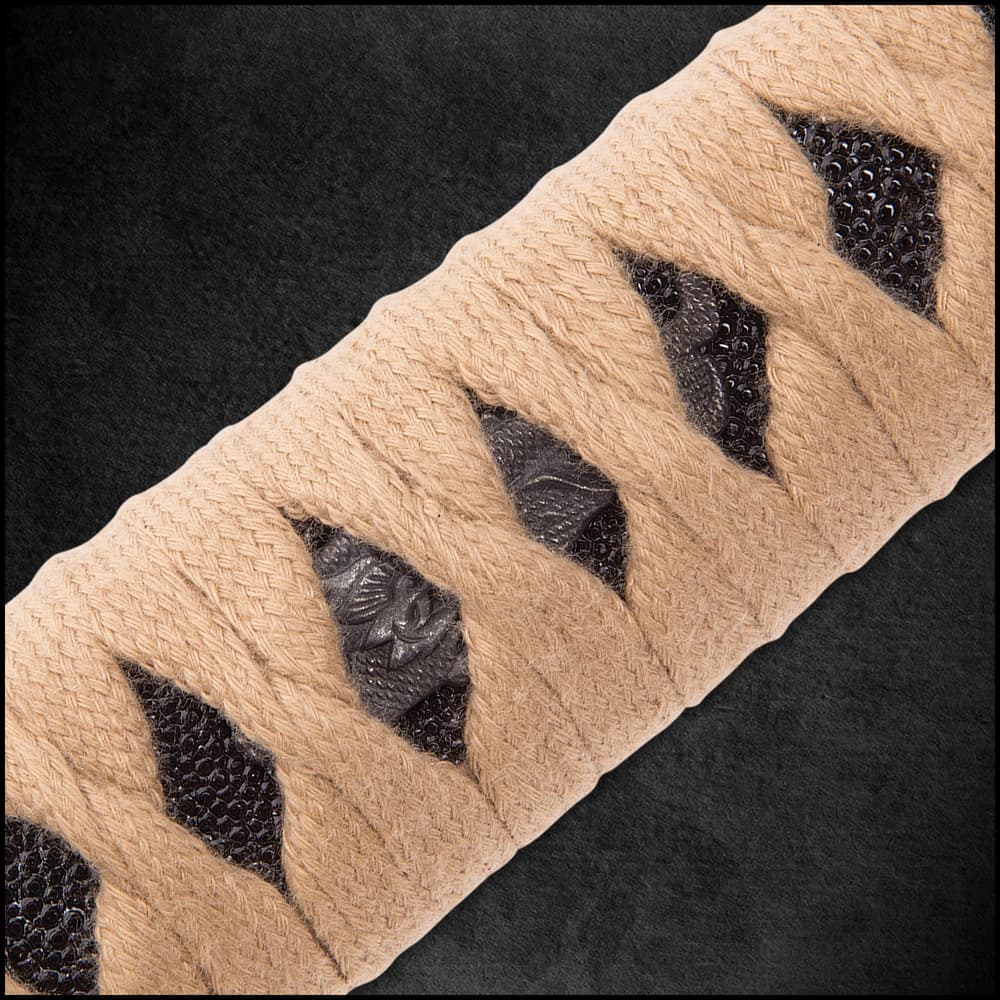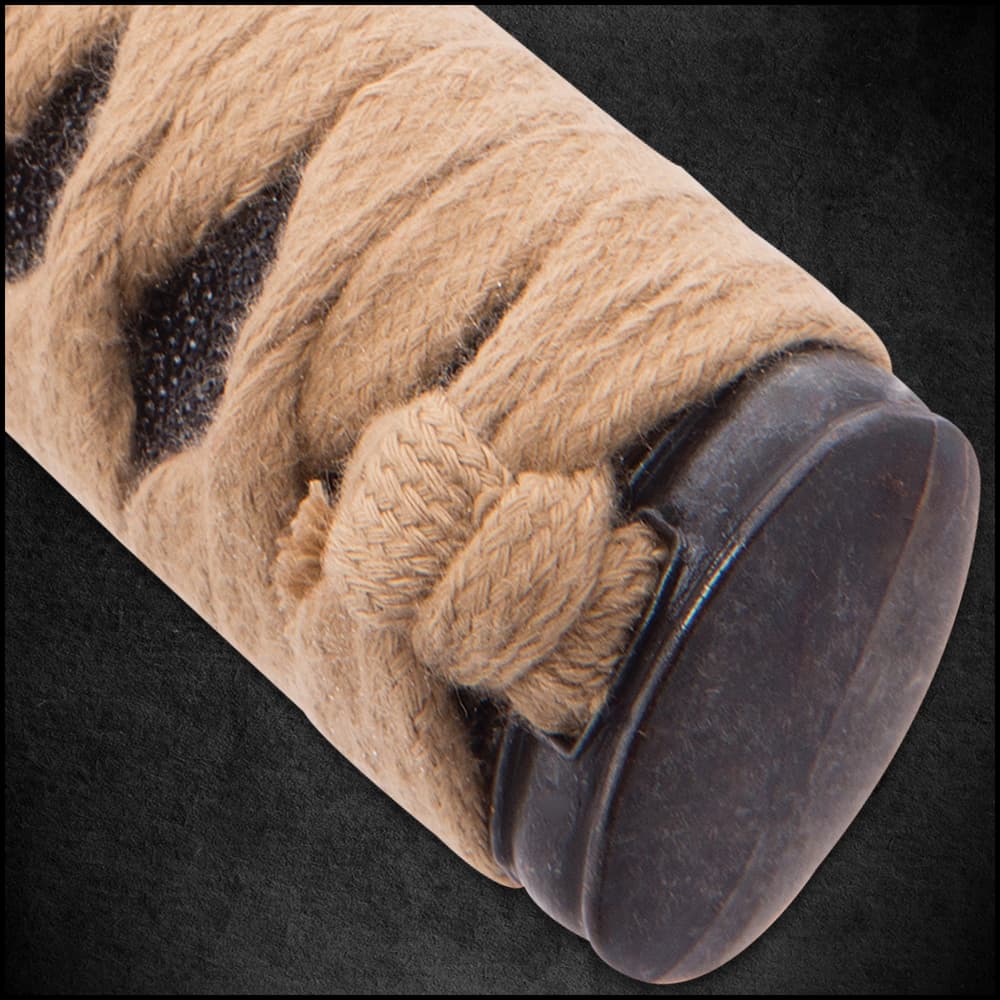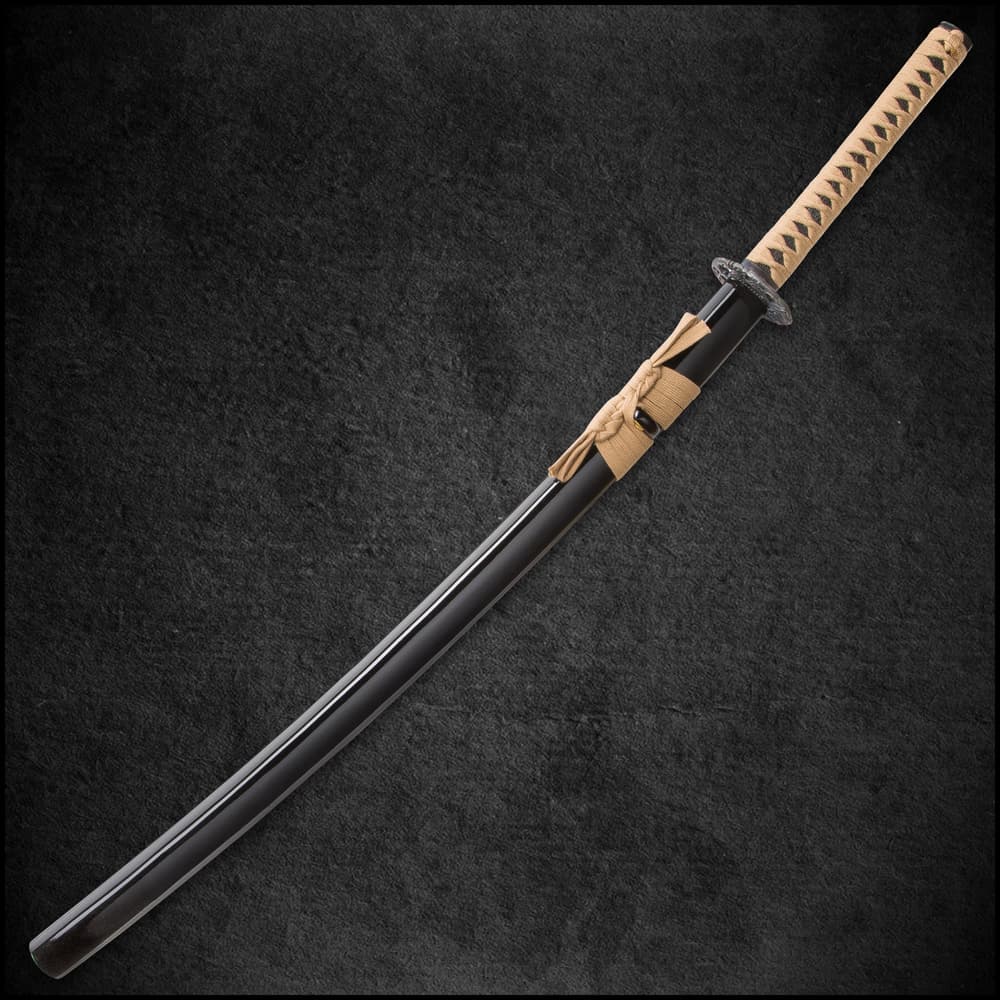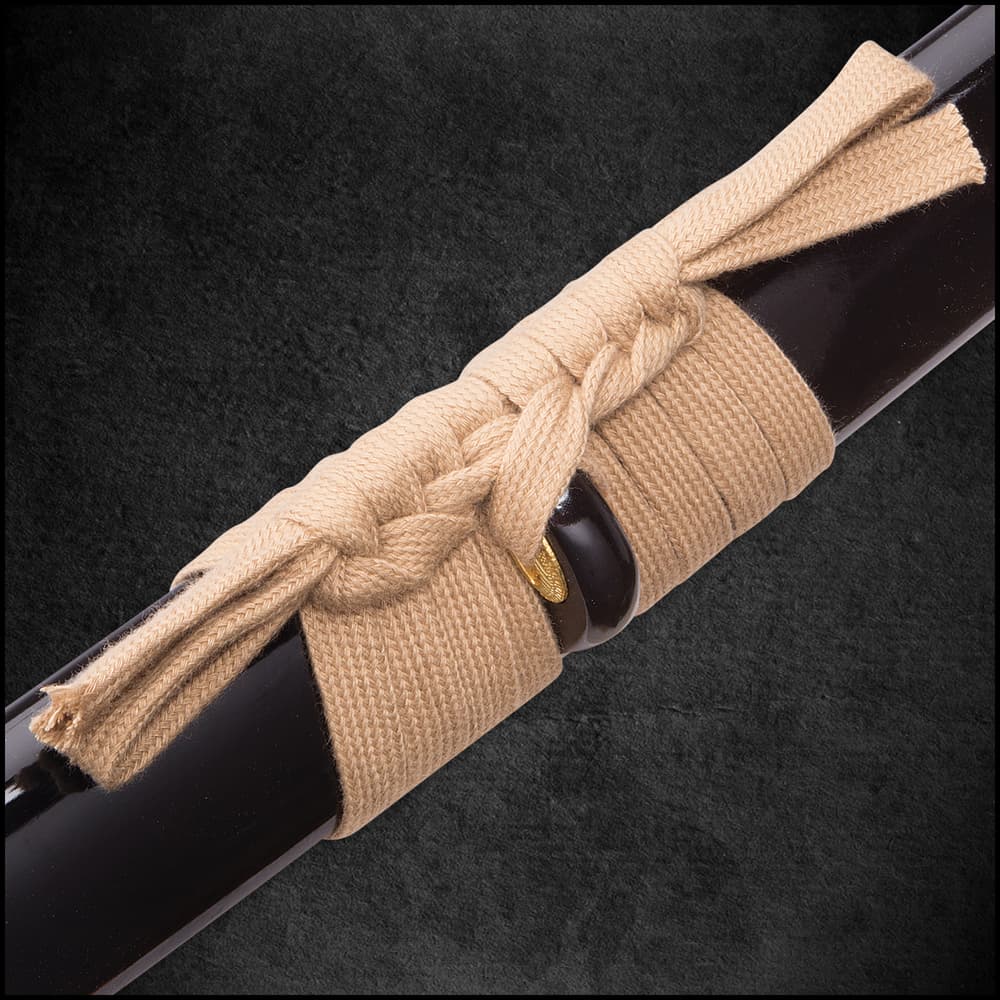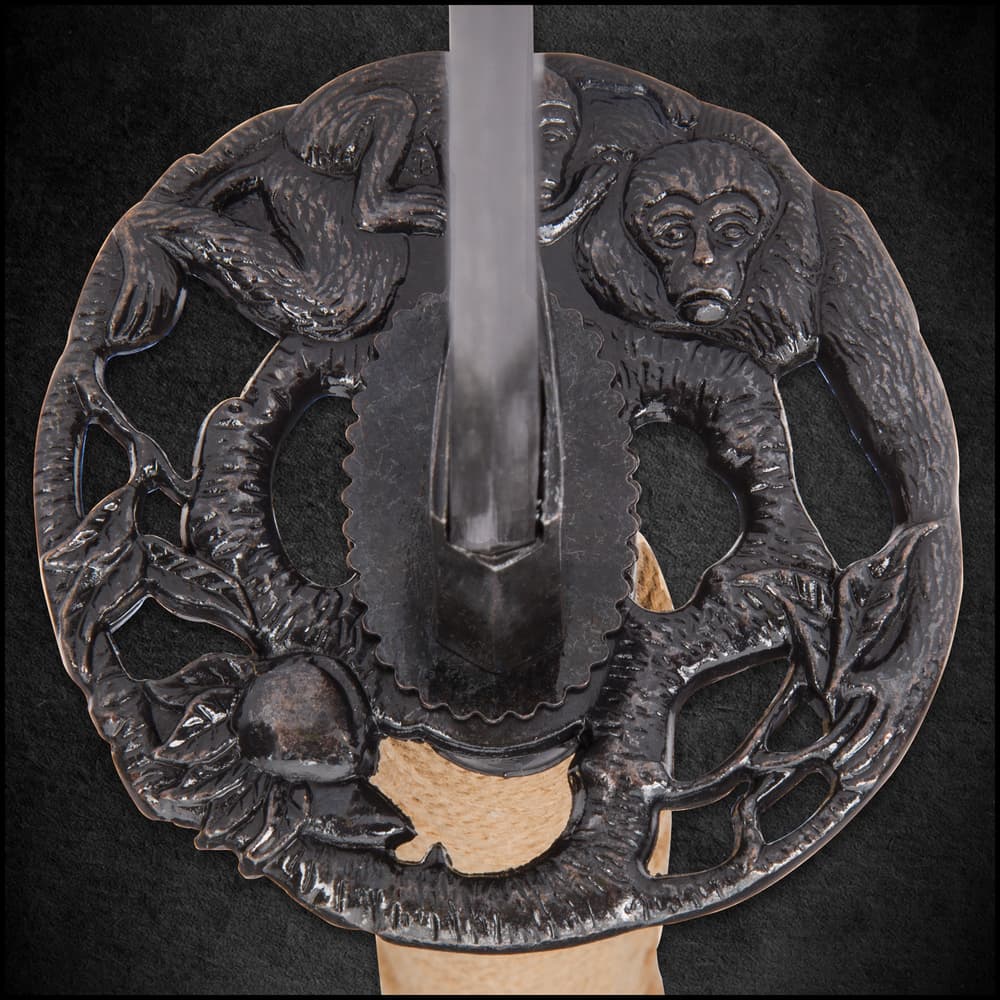Shinwa Makaku Katana | 28 1/2” Damascus steel blade | 39 1/2” overall
$201.99
- In Stock — Ships Today!
- HIGH-QUALITY DAMASCUS STEEL BLADE: 28 1/2” blade forged with over 1,000 layers, showcasing bold, swirling patterns and a striking acid-etched contrast for added strength and visual appeal.
- TRADITIONAL RAY SKIN HANDLE WRAP: Genuine black ray skin wrapped with tan ito, providing a firm, secure grip while maintaining the katana's classic, sophisticated aesthetic.
- INTRICATE MACAQUE TSUBA: Cast-metal tsuba featuring macaques perched in a tree, symbolizing wisdom and power while enhancing the katana’s artistic depth.
- STURDY MENUKI AND MEKUGI: Brass menuki and dual wooden mekugi secure the blade, ensuring stability and strength, essential for durability and reliability during use.
- FINELY LACQUERED SAYA: Hand-lacquered black hardwood saya with coordinating tan sageo, offering sleek protection and completing the katana’s elegant appearance.

- HIGH-QUALITY DAMASCUS STEEL BLADE: 28 1/2” blade forged with over 1,000 layers, showcasing bold, swirling patterns and a striking acid-etched contrast for added strength and visual appeal.
- TRADITIONAL RAY SKIN HANDLE WRAP: Genuine black ray skin wrapped with tan ito, providing a firm, secure grip while maintaining the katana's classic, sophisticated aesthetic.
- INTRICATE MACAQUE TSUBA: Cast-metal tsuba featuring macaques perched in a tree, symbolizing wisdom and power while enhancing the katana’s artistic depth.
- STURDY MENUKI AND MEKUGI: Brass menuki and dual wooden mekugi secure the blade, ensuring stability and strength, essential for durability and reliability during use.
- FINELY LACQUERED SAYA: Hand-lacquered black hardwood saya with coordinating tan sageo, offering sleek protection and completing the katana’s elegant appearance.
$201.99
The Shinwa Makaku Katana is a striking combination of artistry, tradition, and raw power, meticulously hand-forged to represent the pinnacle of Japanese sword craftsmanship. Featuring a 28 1/2” Damascus steel blade with over 1,000 layers, this katana displays bold, swirling patterns that reflect the unparalleled skill of the artisans who crafted it. The acid-etched surface enhances the visual contrast, giving the katana a unique, fierce appearance. With its full-tang construction, the katana is both durable and well-balanced, making it ideal for both display and martial arts practice. The tsuka, wrapped in genuine black ray skin and tan ito, offers a comfortable, secure grip that complements the sword’s strength and beauty.
The katana's tsuba is another highlight, featuring an intricate cast-metal design of macaques perched in a tree, symbolizing nature's wisdom and power. The black lacquered hardwood saya, polished to perfection, offers a sleek, protective casing for the blade and is accented with tan sageo that matches the handle wrapping. With an overall length of 39 1/2”, the Makaku Katana is as imposing as it is beautiful, a perfect choice for martial artists, collectors, and admirers of fine weaponry. This sword is built to last for generations, making it both a functional weapon and an exquisite work of art.
